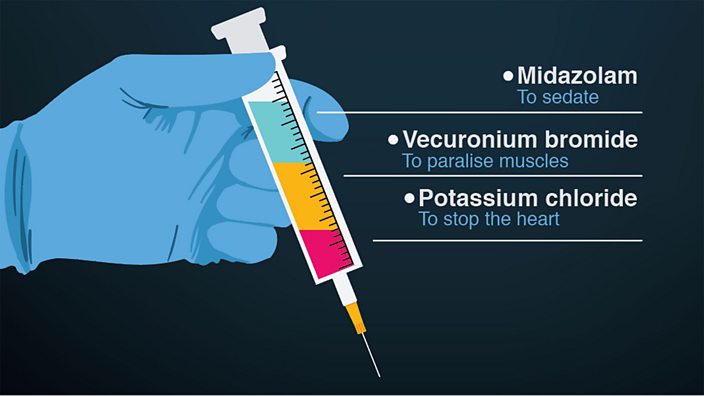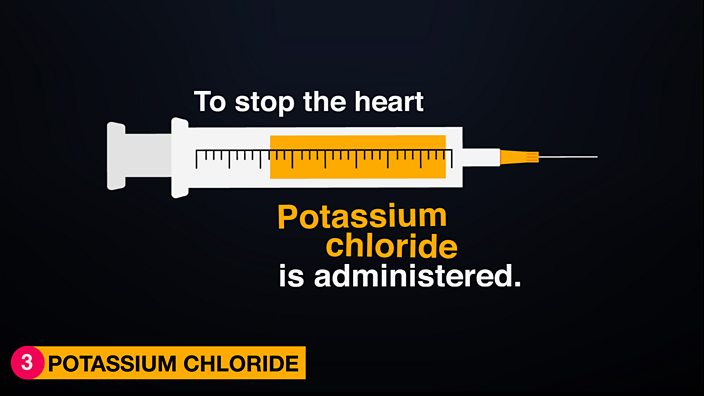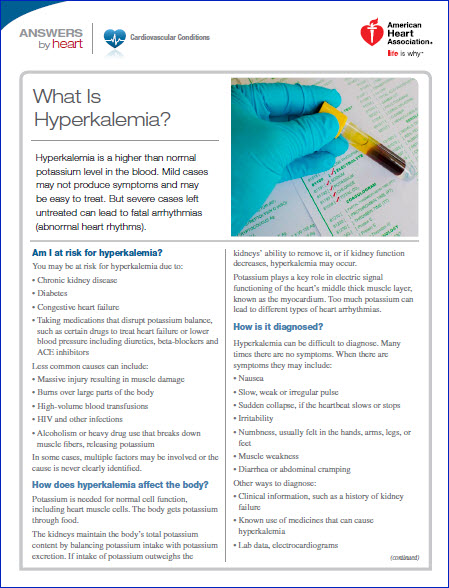How Much Potassium Does It Take To Stop A Heart
- Get link
- X
- Other Apps
Hyperkalemia is a potassium level of greater than 55. That time frame would make sense to me.
 A Primer On Potassium American Heart Association
A Primer On Potassium American Heart Association
This is due to metabolic acidosis where potassium.

How much potassium does it take to stop a heart. For most people their potassium level should be between 35 and 50 millimoles per liter mmolL. The most important is the effect of potassium on the heart - cardiac arrhythmias heart block and even cardiac arrest. So its not clear exactly how much potassium you can take safely.
Heart palpitations can be scary and they may have their origins in too much or too little potassium. Potassium is crucial to heartbeat regulation muscle contraction and proper functioning of the nervous system according to the American Heart Association. During executions it seems to take 15-30 minutes as best as I can determine it Ive never witnessed one Im glad to say.
Potassium chloride injected directly into the veins burns like fire. The recommendation for potassium is around 3400 mg per day depending on age and gender. Supplementation may be necessary when potassium levels in the.
A healthy potassium blood level is between 35 and 50 milliequivalents per liter mEqL. Your recommendation may be more or less depending on your individual situation. Healthy people should not worry about consuming too much potassium because their kidneys can filter out the excess.
Has been shown to increase survival and reduce the need for hospitalization in people with severe heart failure. Potassium is a mineral thats involved in muscle contractions heart function and water balance. On average men eat about 3000 mgday and women eat about 2300 mgday.
Hemolytic anemia severe burns tumors and intestinal bleeding can also cause hyperkalemia. If youve been supplementing with potassium or have increased your intake of foods high in potassium heart palpitations could be a sign to scale it back. MedlinePlus indicates that the recommended dietary intake of potassium for anyone over 14 is 47 g per day.
The heart the muscle that has the vital function of pumping oxygenated blood throughout. Removes excess fluid from the body and may be used in the treatment of heart failure cirrhosis of the liver and in nephrotic syndrome a type of kidney disease. Most women should get 2600 milligrams of potassium a day and men 3400 milligrams a day but most of us fall short.
Lactating women should consume 51 g of potassium per day. Spironolactone may also be called a potassium-sparing diuretic. If you are at risk of developing a potassium deficiency consult your doctor to determine how much potassium.
The only way to determine the amount of potassium in your system is with a blood test. Patients with hyperkalemia may have a normal electrocardiogram or only subtle changes. Its important to meet your potassium requirement but not to exceed it.
You dont wanna give rapid infusion of potassium because it can cause hyperkalemia which can lead to a number of adverse effects. Potassium intake recommendations for children are 3 g per day for children ages 1 to 3 38 g per day for kids between 4 and 8 and 45 g per day for children between 9 and 13. However very high doses of potassium can be deadly.
Healthy people rarely need extra potassium but foods. Getting enough potassium will help keep you free from heart. When the potassium level in the blood serum goes to 8 normal being 3458 the chemical mechanism that generates the 09 milivolt that triggers the heart muscle.
Theoretically if you injected a massive amt of potassium directly into the heart death might. Staying within this range supports electric signaling in the heart. Low blood potassium levels are called hypokalemia.
Potassium is just part of an overall heart-healthy eating pattern. If your potassium is at or above the high end of the range he may send you. Potassium is lethal and therefore a slow infusion with ECG monitoring is preferred.
If levels are too high the heart can stop beating. The normal potassium level is 35 - 50 mEqL of blood. An excessive buildup of potassium in they body is referred to medically as hyperkalemia.
If you have kidney disease consult your doctor on your potassium an all nutritional needs. These recommendations do not apply to those with kidney diseases. Potassium deficiency or hypokalemia can cause weakness and muscle cramps excessive urination and thirst or abnormal heart rhythm a potentially fatal complication of low potassium.
Ideally your potassium should be between 37 to 53 milliequivalents per liter shown as mEqL according to MedlinePlus. It helps your muscles function. When the potassium level in the blood serum goes to 8 normal being 3458 the chemical mechanism that generates the 09 milivolt that triggers the heart muscle to contract is compromised and heart function ceases.
How much potassium should I eat. There is no set upper limit for potassium. This article explains how much potassium you need per day.
Hyperkalemia occurs when the kidneys are not functioning properly and are unable to do so.
 11 Foods To Avoid Heart Pain Weight Gain Infographic
11 Foods To Avoid Heart Pain Weight Gain Infographic
 High Potassium And Cardiovascular Disease What S The Link
High Potassium And Cardiovascular Disease What S The Link
 Life And Death Row How The Lethal Injection Kills Bbc Three
Life And Death Row How The Lethal Injection Kills Bbc Three
High Potassium Hyperkalemia Causes Prevention Treatment American Kidney Fund Akf
 How Too Little Potassium May Contribute To Cardiovascular Disease National Institutes Of Health Nih
How Too Little Potassium May Contribute To Cardiovascular Disease National Institutes Of Health Nih
 The Healthy Heart Low Potassium Paradox Download Scientific Diagram
The Healthy Heart Low Potassium Paradox Download Scientific Diagram
 Treatment Of Palpitations Due To Benign Pvcs Potassium Magnesium And Lifestyle Adjustment The Skeptical Cardiologist
Treatment Of Palpitations Due To Benign Pvcs Potassium Magnesium And Lifestyle Adjustment The Skeptical Cardiologist
 Solved People With Heart Problems Or With Certain Conditi Chegg Com
Solved People With Heart Problems Or With Certain Conditi Chegg Com
 Effect Of Short Term Supplementation Of Potassium Chloride And Potassium Citrate On Blood Pressure In Hypertensives Hypertension
Effect Of Short Term Supplementation Of Potassium Chloride And Potassium Citrate On Blood Pressure In Hypertensives Hypertension
/potassium-bicarbonate-overview-4582174_final-5c86c38a4cedfd000190b1fb.png) Potassium Bicarbonate Benefits Side Effects Dosage
Potassium Bicarbonate Benefits Side Effects Dosage
 What Causes Low Potassium How To Treat Hypokalemia
What Causes Low Potassium How To Treat Hypokalemia
 Life And Death Row How The Lethal Injection Kills Bbc Three
Life And Death Row How The Lethal Injection Kills Bbc Three
 Potassium May Help To Prevent Heart Disease
Potassium May Help To Prevent Heart Disease
 Hyperkalemia High Potassium American Heart Association
Hyperkalemia High Potassium American Heart Association
Comments
Post a Comment